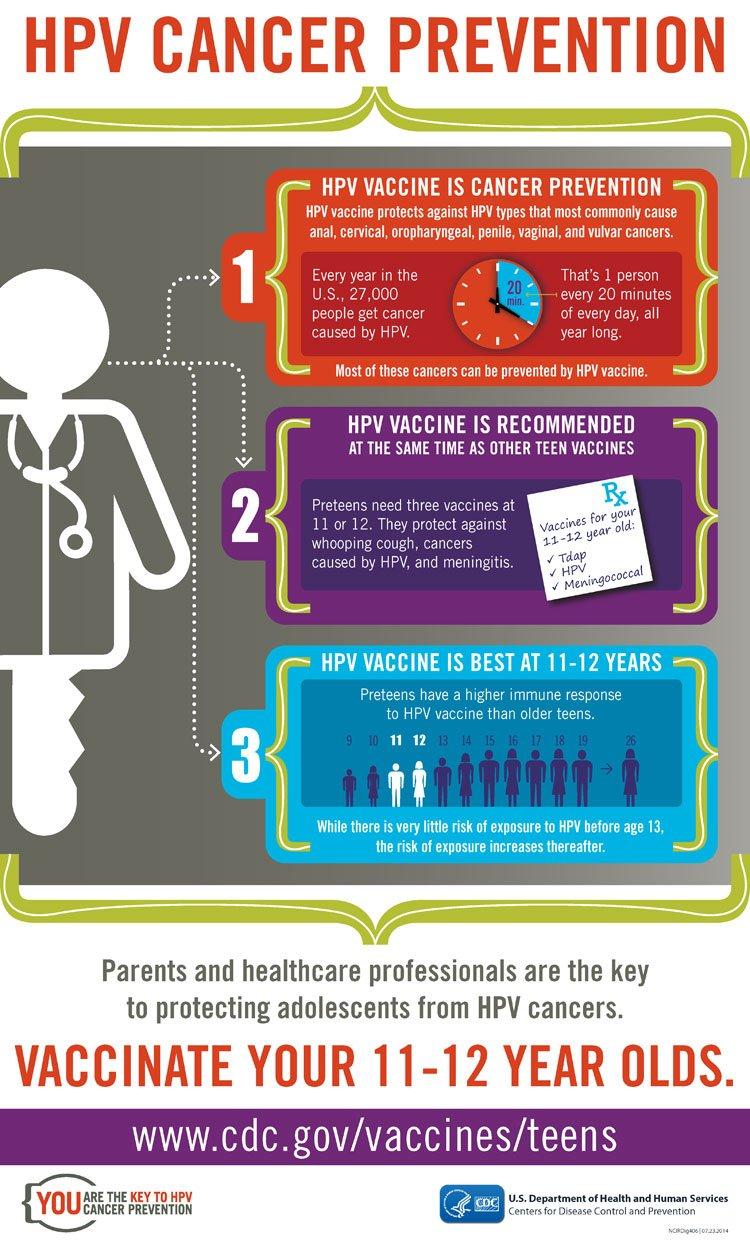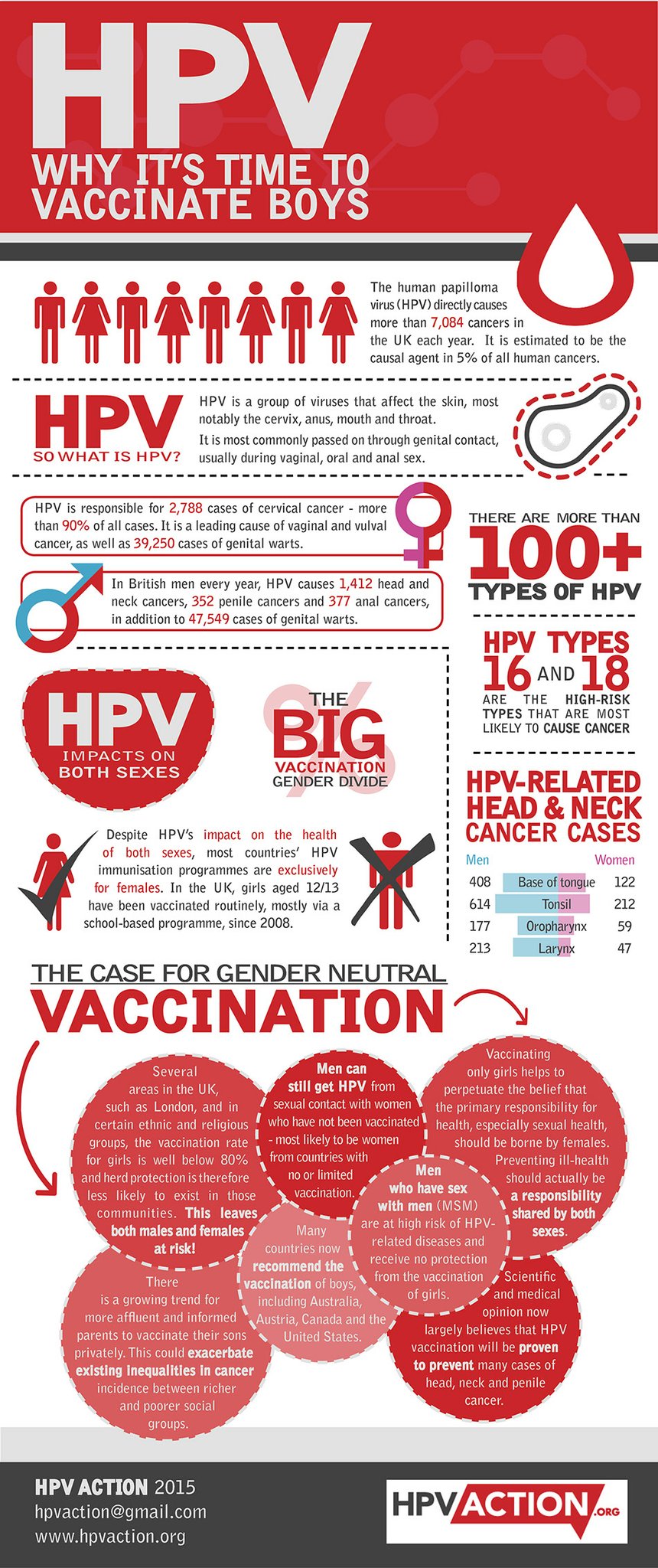Improving HPV Vaccination Rates
It's estimated that there are 14 million new Human Papillomavirus (HPV) infections occurring each year in the U.S. HPV causes 31, 500 new diagnoses each year in the United States including cervical cancer, anal cancer, oropharyngeal cancer, vaginal cancer, vulvar cancer and penile cancer. High HPV vaccination rates can decrease cervical dysplasia by 90%. The CDC recommends the HPV vaccine at ages 11-12, but the Centers for Disease Control and Prevention (CDC) reports that only 60% of teens aged 13-17 years received one or more doses of HPV vaccine in 2016. Immunization providers and parents are the key to HPV cancer prevention.

Amazing HPV vaccine
Widespread vaccination with Cervarix or Gardasil has the potential to reduce cervical cancer incidence around the world by as much as two-thirds, while Gardasil 9 could prevent an even higher proportion. In addition, the vaccines can reduce the need for medical care, biopsies, and invasive procedures associated with follow-up from abnormal cervical screenings, thus helping to reduce health care costs and anxieties related to follow-up procedures. Until recently, the other cancers caused by HPV were less common than cervical cancer. However, the incidence of HPV-positive oropharyngeal cancer and anal cancer has been increasing, while the incidence of cervical cancer has declined, due mainly to highly effective cervical cancer screening programs.
Therefore, the number of HPV-positive cancers located outside the cervix in the U.S. is now similar to that of cervical cancer. In addition, most of the HPV-positive, non-cervical cancers arise in men. There are no formal screening programs for non-cervical cancers, so universal vaccination could have an important public health benefit.
Source: National Cancer Institute

Why Vaccinate Boys?
As lot of parents know that HPV vaccine protects girls against cervical cancer. But did you know that vaccinating boys can protect them, too?
HPV is short for human papillomavirus, a common virus in both women and men. HPV can cause cancers of the anus, mouth/throat, and penis in men. Every year, over 9,000 men are affected by cancers caused by HPV.
Cases of anal cancer and cancers of the mouth/throat are also on the rise. In fact, if current trends continue, the annual number of cancers of the mouth/throat attributed to HPV is expected to surpass the annual number of cervical cancers by 2020.
Many of the cancers caused by HPV infection could be prevented by HPV vaccine. One vaccine, Gardasil, is recommended by doctors and health experts for boys ages 11-12 to prevent infection with HPV that could lead to cancer. HPV vaccination of boys is also likely to benefit girls by reducing the spread of HPV infection.
Source: Centers for Disease Control
Tips for Parents
3 things parents need to know:
1. HPV vaccination is the best way to prevent many types of cancer.
2. HPV vaccination is recommended at ages 11 or 12.
3. HPV vaccination is reducing HPV disease.
Source: US Department of Health and Human Services, Centers for Disease Control and Prevention